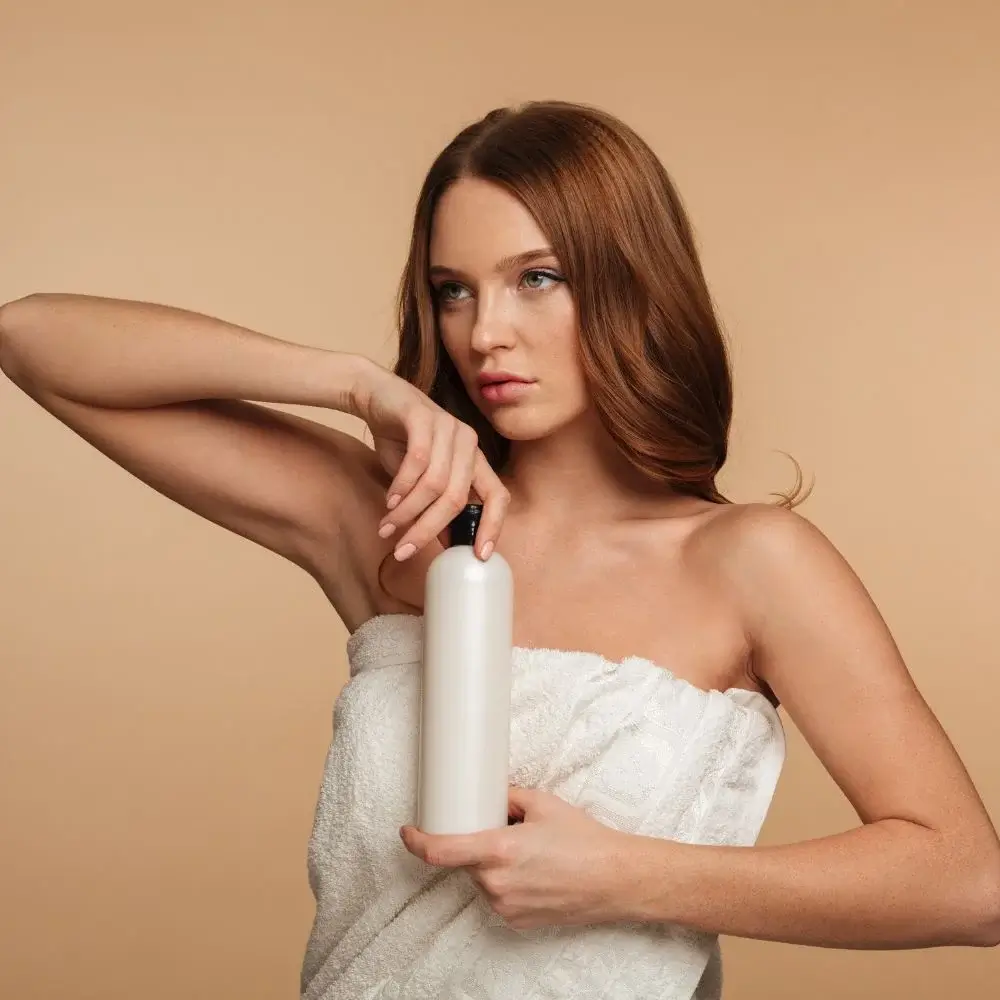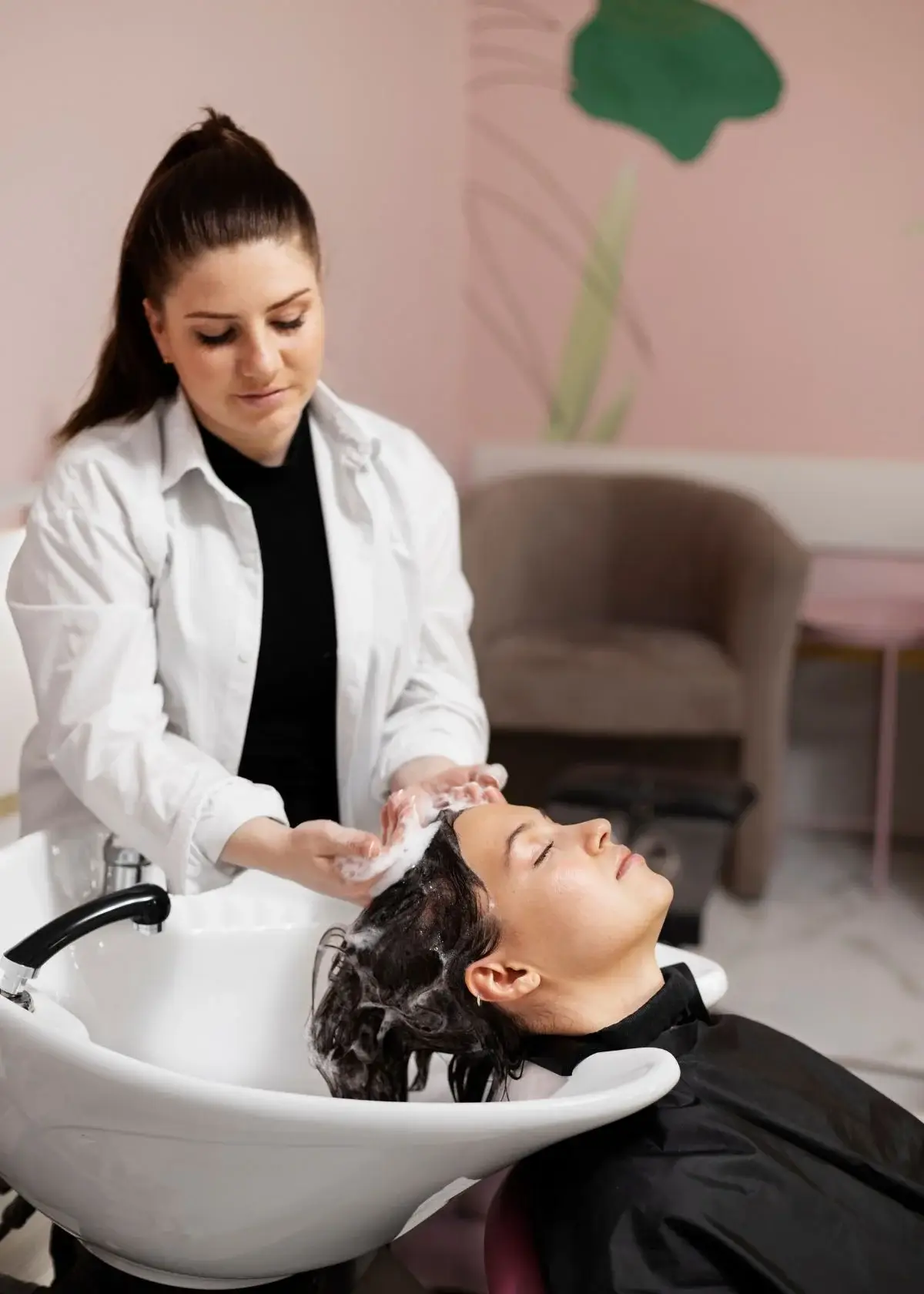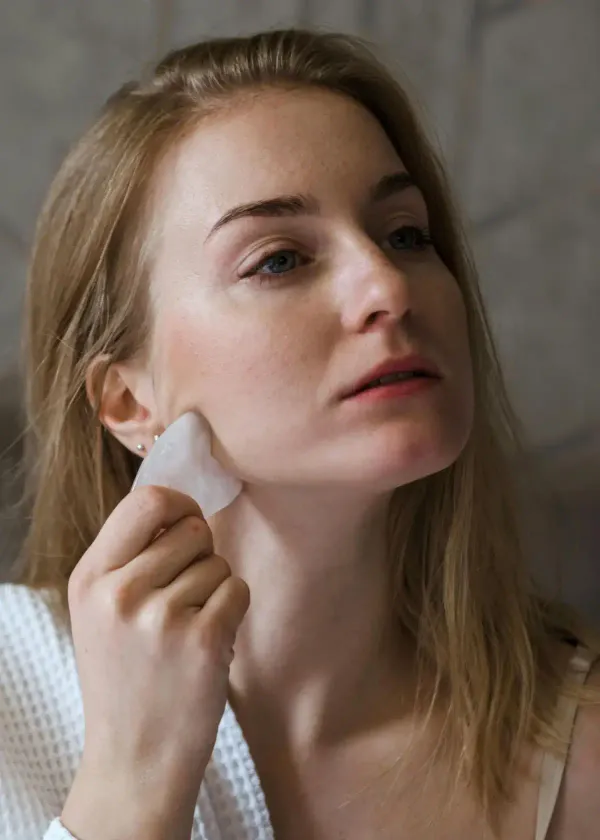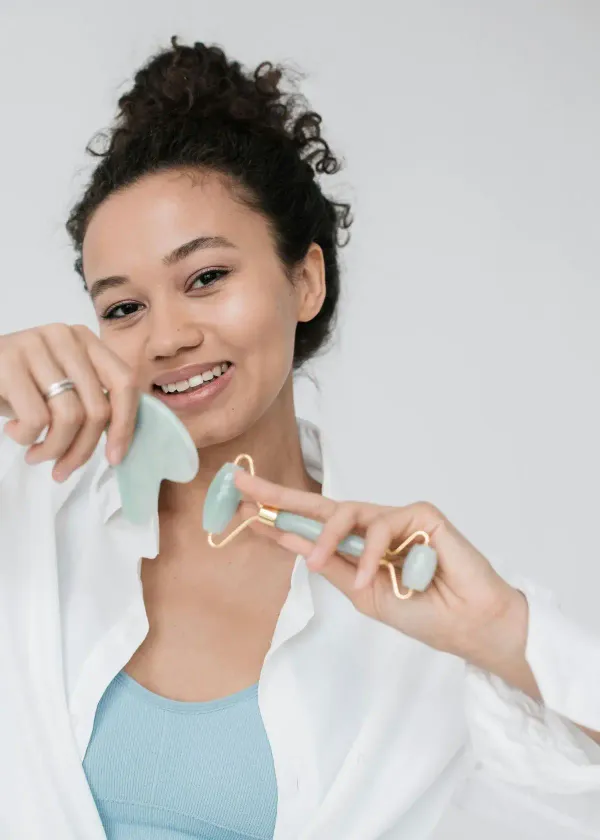Deep conditioning is one of the best hair treatments for dry, brittle, and damaged hair, and it’s especially great for those of us with relaxed hair. Relaxers can strip our hair of the essential oils and nutrients it needs to thrive, leaving it susceptible to breakage and damage. Deep conditioning can help restore moisture, prevent breakage, and restore your hair's natural texture. In this blog post, we will explore the benefits of deep conditioning for relaxed hair, how often you should do it, and some great products you can try.
What Is Deep Conditioning?
Deep conditioning involves applying a thick conditioner to your hair and leaving it on for a specific time. The conditioner penetrates the hair shaft, providing moisture and nourishment to the hair. Deep conditioning is usually done once a week, but it can be done more or less frequently depending on your hair’s needs.
Benefits Of Deep Conditioning
Deep conditioning is an essential part of your hair care routine. It can help to:
- Hydrate and moisturize your hair
- Prevent breakage and split ends
- Promote hair growth
- Restore shine and luster
- Soften coarse hair
- Reduce frizz and flyaways
How Often Should You Deep Condition Relaxed Hair?
Deep conditioning once a week is generally recommended for relaxed hair. However, some people with extremely dry or damaged hair may need to do it more often. If your hair is healthy and doesn’t require a lot of extra moisture, you may be able to deep condition it less frequently. Pay attention to your hair’s needs and adjust accordingly.
Best Products For Deep Conditioning Relaxed Hair
To deep condition your hair, you’ll need a thick, rich conditioner that can penetrate the hair shaft. Look for conditioners that contain natural oils like coconut or avocado oil and humectants like glycerin or honey. Some tremendous deep conditioners for relaxed hair include:
- Eden Bodyworks Jojoba Monoi Deep Conditioner
- As I Am Hydration Elation Intensive Conditioner
- Aphogee 2 Minute Reconstructor
- Mielle Organics Babassu Oil & Mint Deep Conditioner
How To Deep Condition Relaxed Hair
To deep condition your relaxed hair, follow these steps:
- Shampoo your hair with a clarifying shampoo to remove any buildup and prep your hair for the deep conditioner.
- Apply the deep conditioner to your hair, focusing on the ends and areas that are most damaged.
- Cover your hair with a plastic cap and let the conditioner sit for at least 20-30 minutes. You can also use a hair steamer or heat cap for added moisture and penetration.
- Rinse your hair with cool water. This will help to close the cuticles and seal in moisture.
- Follow up with a leave-in conditioner or moisturizer to keep your hair hydrated until your next wash day.
Deep conditioning is an excellent way to keep your relaxed hair healthy and strong. It can help to prevent breakage, restore moisture, and revive your natural texture. Be sure to use high-quality products, deep condition once a week, and pay attention to the needs of your hair. With patience, discipline, and TLC, you can achieve beautiful, vibrant hair that you can be proud of and that’s worth showing off.
When it comes to maintaining relaxed hair, finding the right products is essential. An excellent deep conditioner is one of the most important products to have in your arsenal. Lucky for you, we’ve done the research and found the best deep conditioner for relaxed hair on the market. Trust us when we say this conditioner will leave your hair feeling soft, moisturized, and rejuvenated. So why wait? Click the link and discover your new go-to deep conditioner today. Your hair will thank you for it!
What is the impact of leaving a deep conditioner on relaxed hair for an extended period?
Leaving a deep conditioner on relaxed hair for an extended time can have varying effects. While deep conditioning is designed to provide intensive moisture and nourishment, prolonged exposure may not amplify these benefits. Over-moisturization is a potential outcome, causing the hair to become excessively soft and limp. This can weaken the hair's structure, making it more susceptible to breakage. Besides, the accumulation of conditioner residue can contribute to a greasy appearance. To maximize the benefits without risking over-conditioning, it's recommended to adhere to the manufacturer's guidelines and avoid exceeding the suggested duration.

What precautions should I take while using a deep conditioner on chemically relaxed hair?
Using a deep conditioner on chemically relaxed hair requires a strategic approach. Start with a patch review to assess potential allergic reactions or sensitivities. Opt for products labeled as sulfate-free, paraben-free, and specifically formulated for chemically treated hair. Focus the application primarily on the mid-length to ends, where the hair is often more porous and susceptible to dryness. While deep conditioning offers numerous benefits, excessive use can lead to product buildup, so striking a balance is essential. Regularly monitor your hair's response and adjust the frequency based on its unique needs.

What signs indicate the need for a deep conditioning treatment on relaxed hair?
Several telltale signs indicate that your chemically relaxed hair needs a deep conditioning treatment. If you notice increased brittleness, excessive frizz, diminished shine, or a lack of manageability, your hair craves other hydration and nourishment. Chemical treatments can strip the hair of its natural oils and moisture, resulting in these common issues. Deep conditioning helps replenish the hair's moisture levels, strengthen its structure, and restore its overall health and vibrancy.

How do I know if a deep conditioner is causing a buildup on my relaxed hair?
Detecting product buildup on chemically relaxed hair involves recognizing changes in texture and appearance. If your hair feels unusually heavy, becomes greasy shortly after washing, appears lackluster and dull, or experiences reduced volume and bounce, it could be a sign of product accumulation. Consider incorporating a clarifying shampoo into your routine to address this issue. Clarifying shampoos remove residue and buildup, revitalizing the hair's natural shine, texture, and manageability.

How can I balance protein and moisture when using deep conditioners on relaxed hair?
Balancing protein and moisture is pivotal for maintaining the health of chemically relaxed hair. Protein-rich deep conditioners help repair and strengthen the hair's internal structure, while moisture-infusing products hydrate and improve elasticity. Gauge your hair's needs – if it feels weak, lacks structure, or appears overly porous, integrating protein treatments intermittently can be beneficial. Conversely, if your hair feels dry, brittle, and lacks flexibility, focus on moisture-intensive deep conditioning to restore suppleness and vitality. Customizing treatments based on your hair's unique requirements ensures a harmonious equilibrium.
Should I be cautious of allergic reactions when trying a new deep conditioner on relaxed hair?
Indeed, exercising caution when introducing a new deep conditioner to chemically relaxed hair is essential. Begin with an allergy review by applying a small amount of the product to a discreet area of your skin, such as behind the ear or wrist. Chemical treatments can render the scalp and skin more sensitive, increasing the likelihood of allergic reactions. Prioritizing an allergy review helps you identify potential sensitivities and ensures that the chosen deep conditioner is compatible with your hair and skin. It's a proactive step in safeguarding your well-being and preventing any discomfort or adverse effects from occurring.







